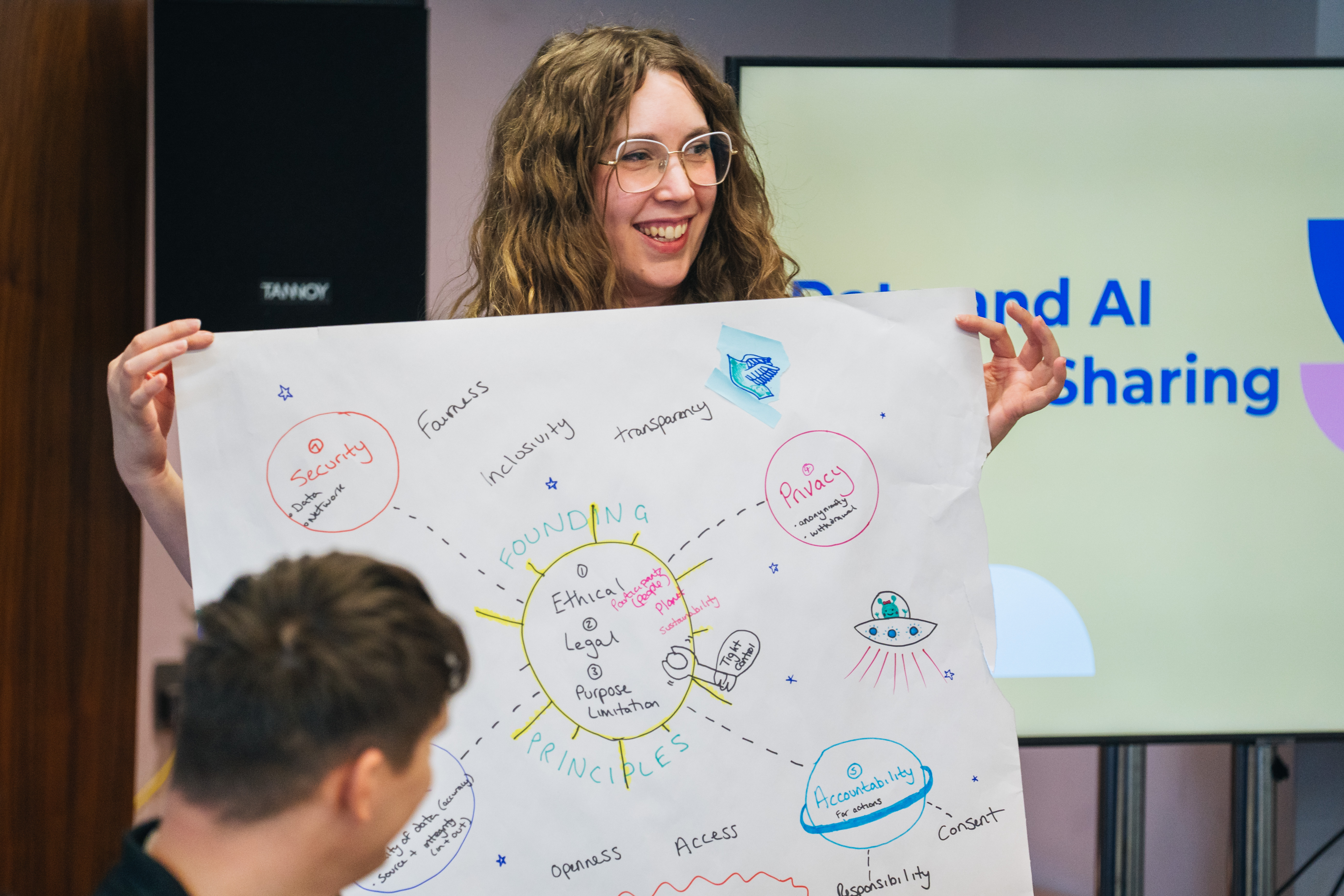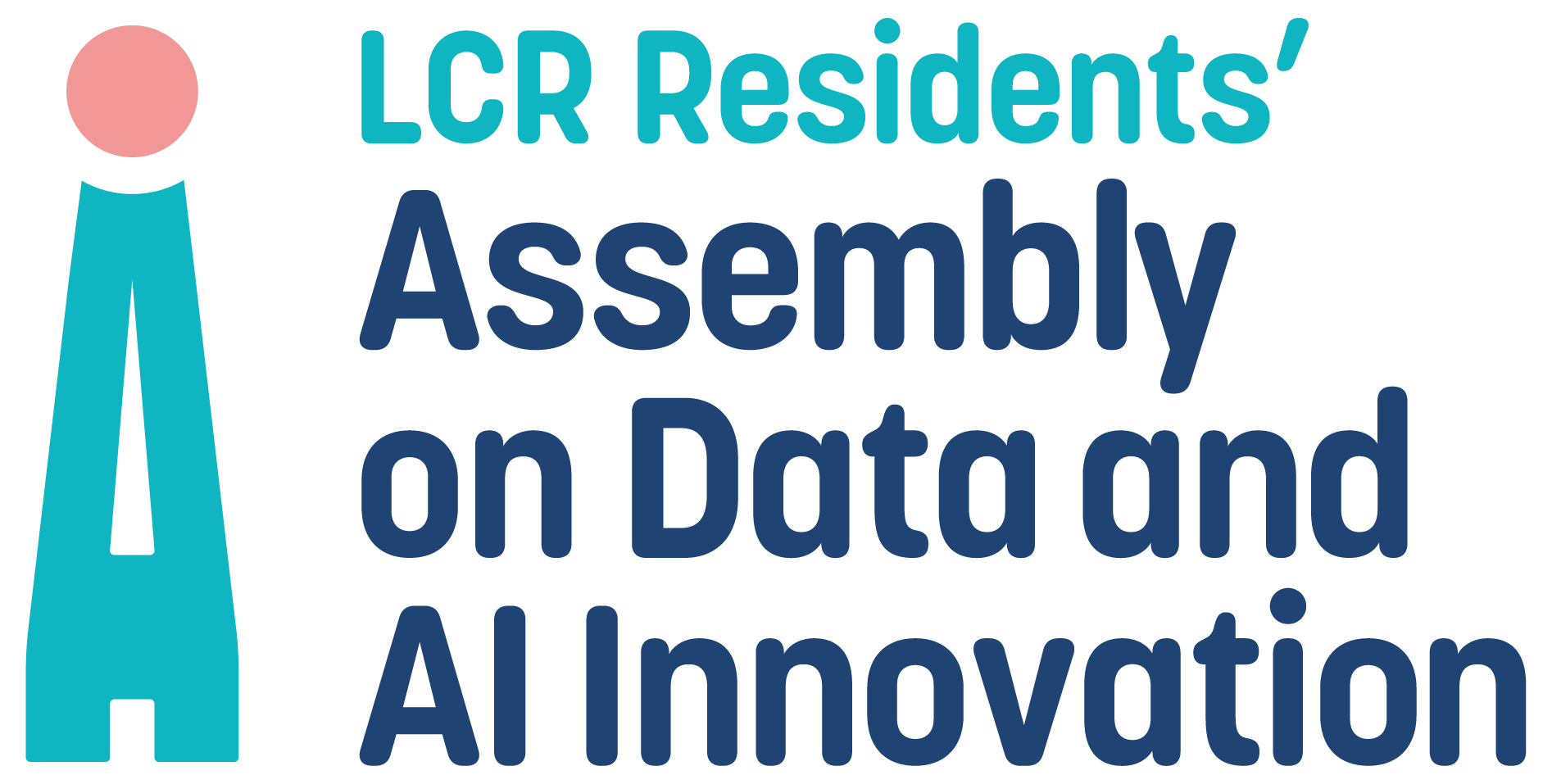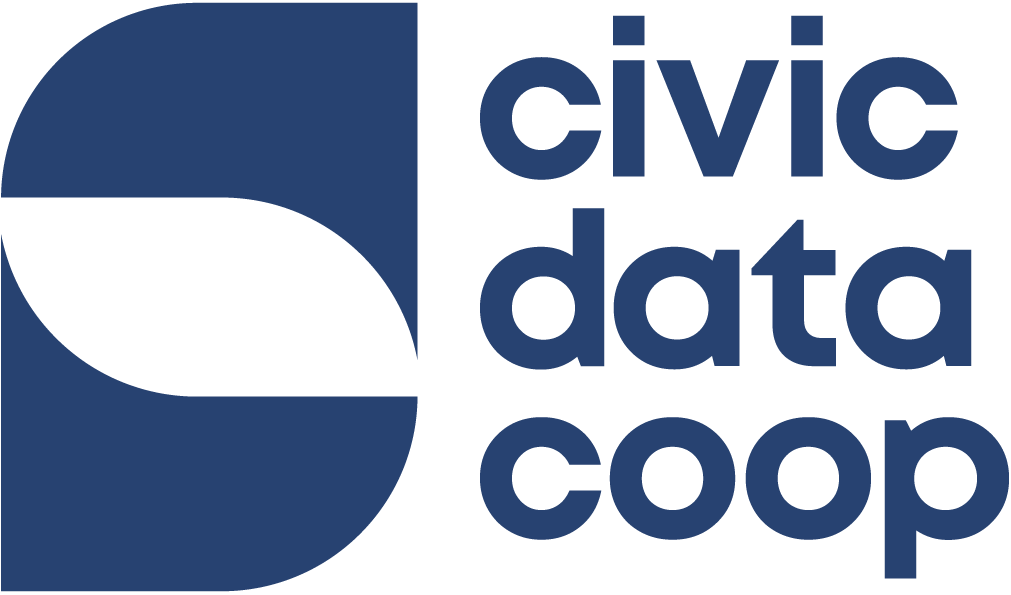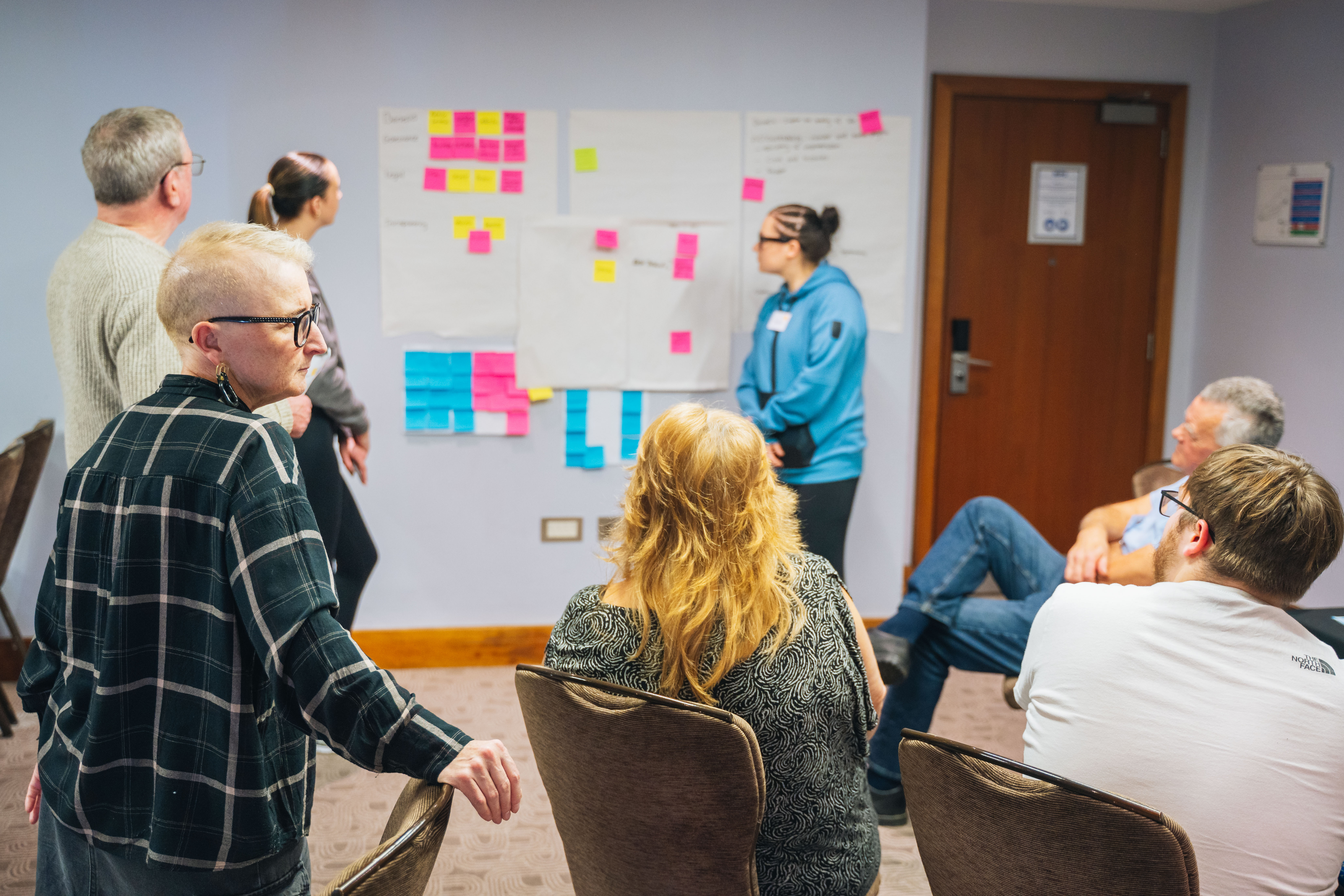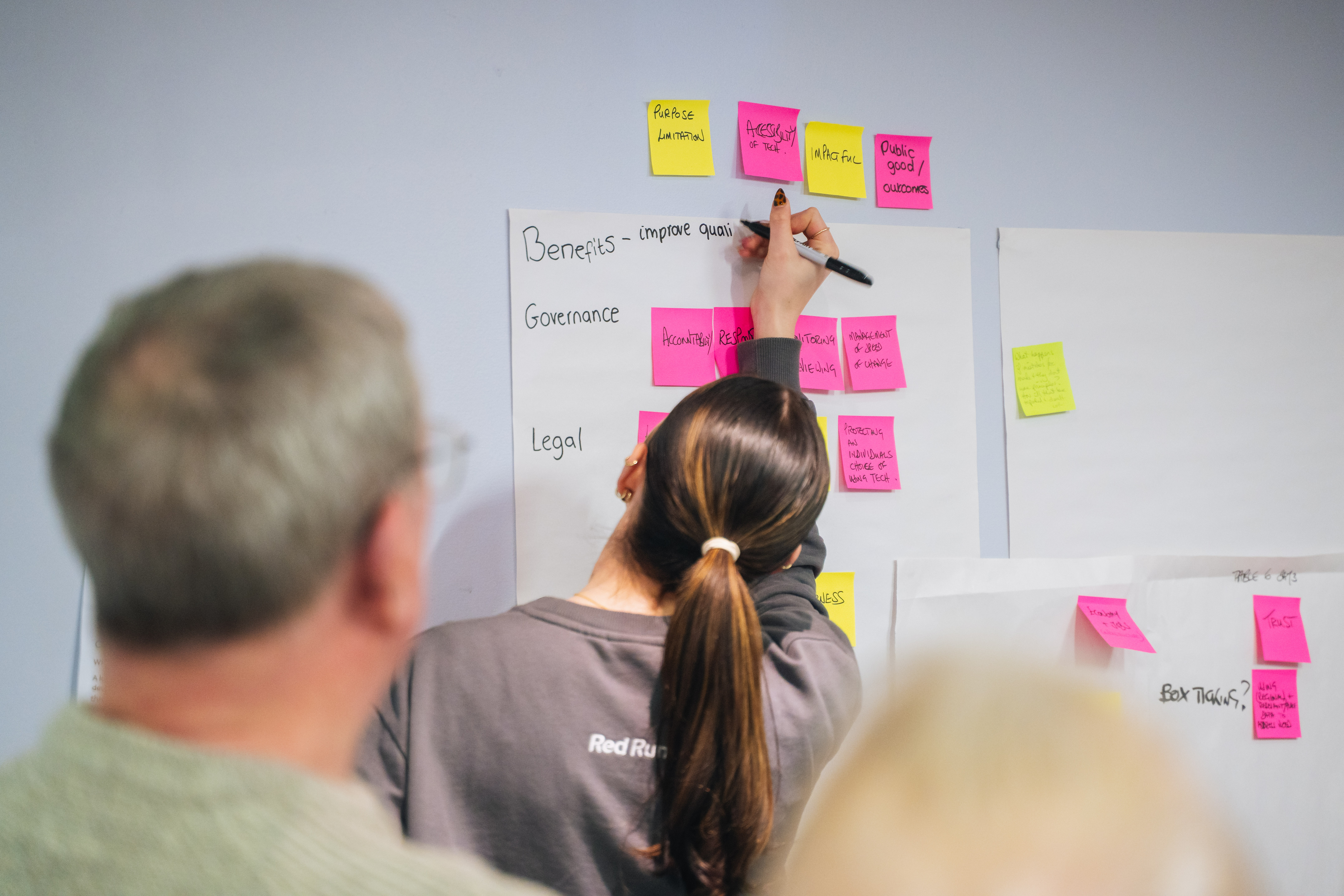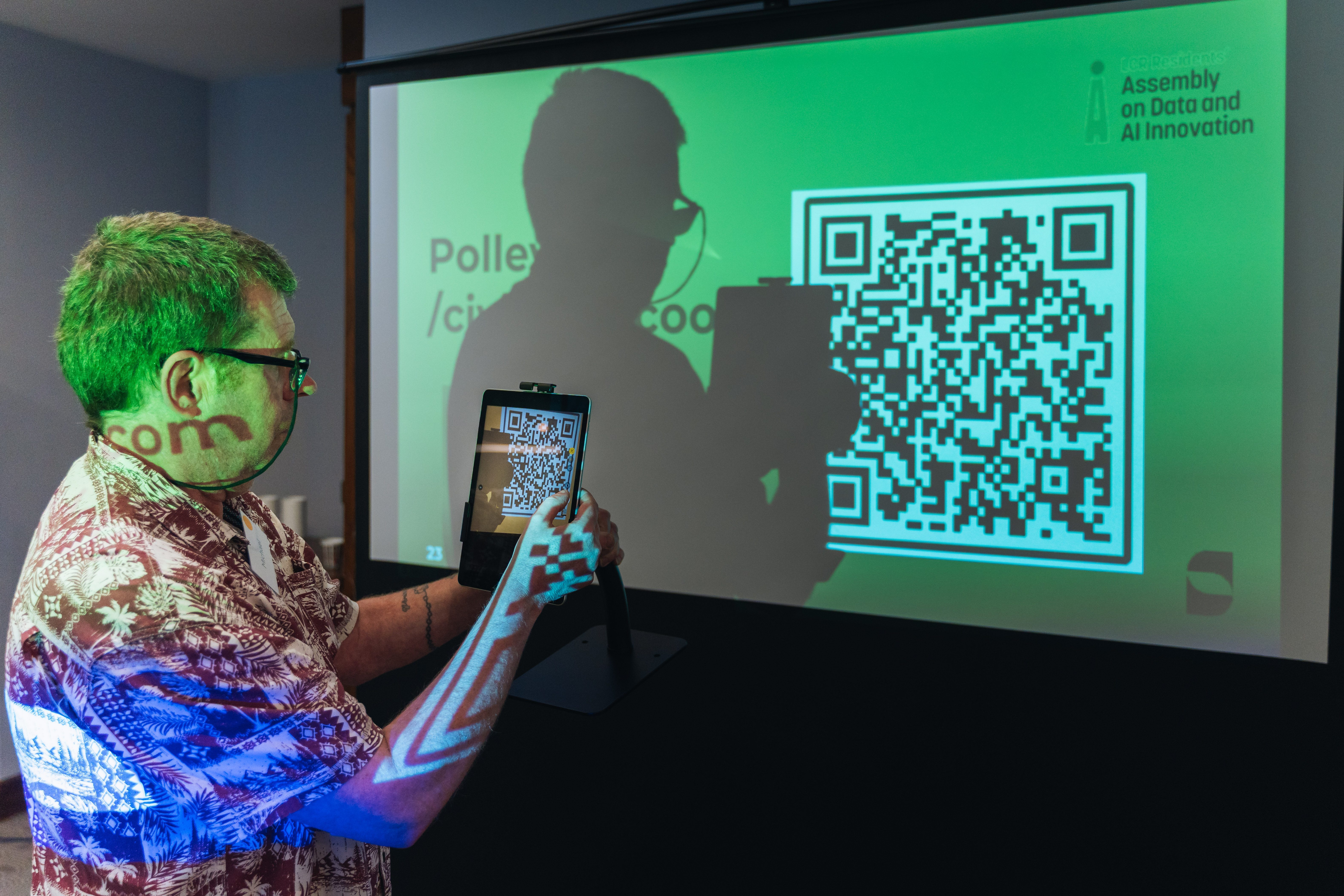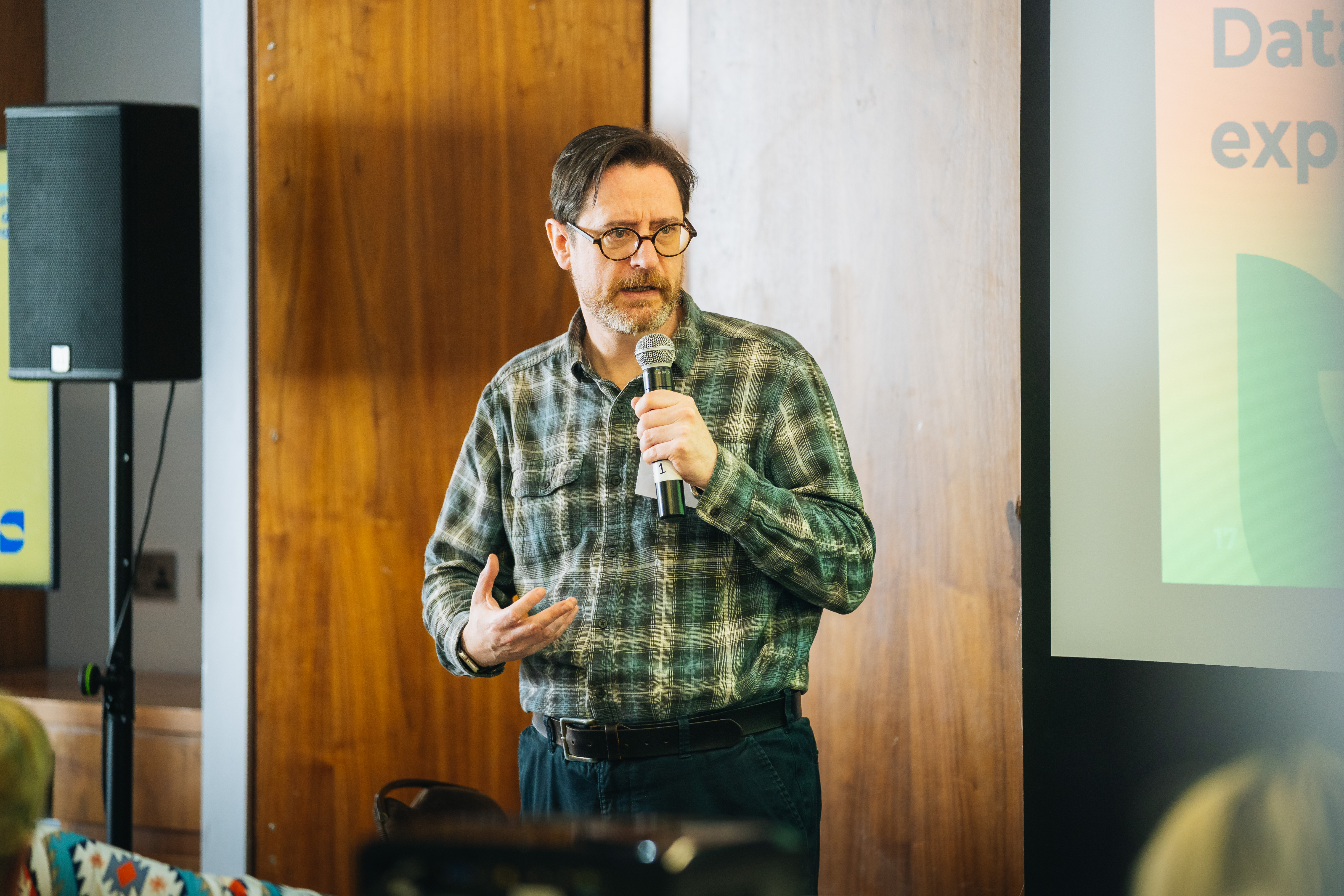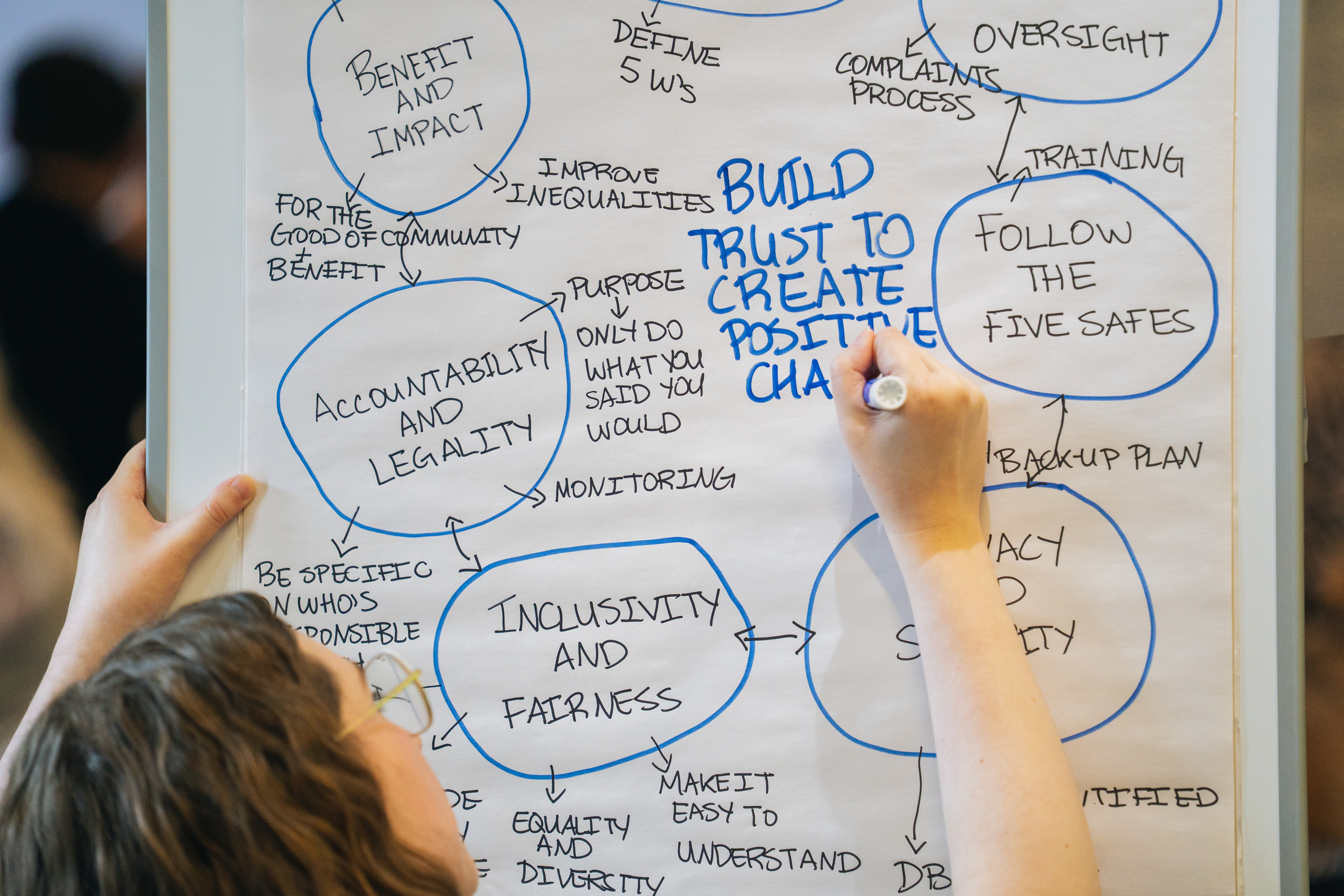Liverpool City Region Residents' Assembly on Data and AI Innovation
In March 2025, we brought together 59 Liverpool City Region residents to debate the direction of data and AI innovation in the region.
Jump to: What we did | What our residents said | Final Report and Charter | Frequently asked questions | Materials and resources | About data and AI
Last updated: 26th June 2025
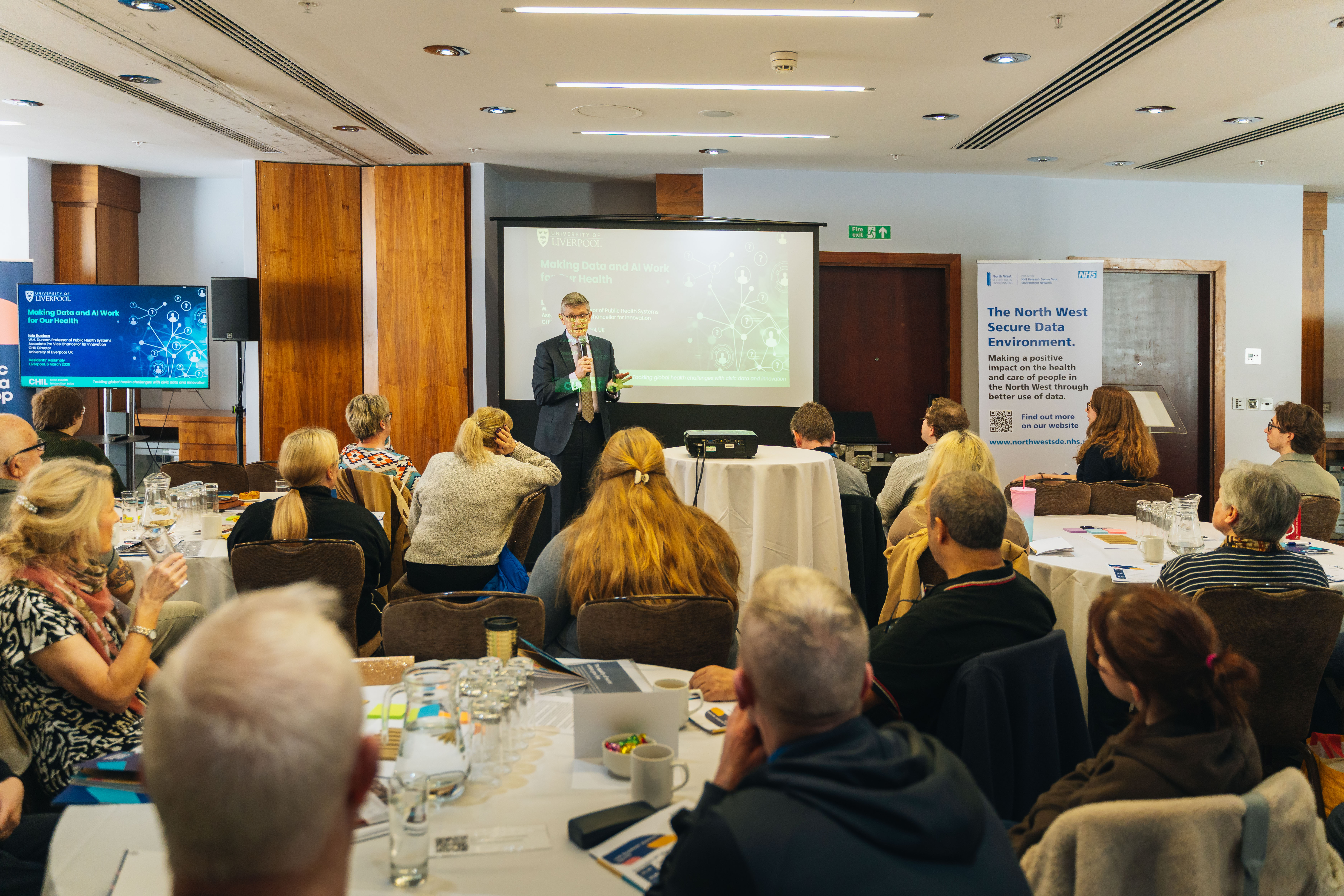










What we did
Every day more and more data is collected about what we do and where we live. At the same time we hear a lot about ‘AI’, chatbots, and digital tech. These technologies are built using information and data about us. Data can be used to make better decisions and build beneficial technology for our local area. It can also get things wrong.
In the Liverpool City Region, we know that giving our residents more of a say on data and AI use in community will help us get things right.
We supported residents to build a set of principles on what trustworthy and beneficial data innovation looks like, that can be used to help inform future local projects that use data with an impact on people’s lives.
Residents took part in four in-person days split across learning and deliberation held in Liverpool City Centre. This included presentations from experts and stakeholders as well as interactive learning activities. An independent evaluator reviewed all materials and sessions. On the final day residents suggested potential principles for the Charter and ranked their preferred options. After additional resident and stakeholder review, a final charter of 11 principles was developed.
These principles form a Liverpool City Region Community Charter on Data and AI, one of the first of its kind in the world. This gives innovators and researchers in the region an actionable social license for data and AI innovation.
My hope is that if used with the best interests with the public in mind, the use of data and AI can drastically improve healthcare, public services, education, and local services like that.
– Assembly Participant, Table 6, Day 4





What our residents said
Residents expressed a strong hope that human dignity and integrity would be the core value for data and AI projects. They want Liverpool to lead the way in community-focussed innovation.
The 11 Charter principles include ideas about beneficial data use, communication on AI, privacy and security, and external oversight.
Assembly participants are worried about a future where the benefits of data and AI aren’t felt equitably. Trustworthy and beneficial data and AI means no community in the LCR is left behind. The principles lay the groundwork for what residents expect of civic and health innovation in the region.
Read the full LCR Community Charter on Data and AI here.
I'm just hopeful that we can be a voice for the people in the region like because it's such a diverse group. You’ve got everyone – people from all walks of life.
– Assembly Participant, Table 2 Day 3



Final Report and Charter
Read our full report to learn more about the Assembly. What you’ll find inside:
- The LCR Community Charter on Data and AI
- Quotes and themes from residents on their views of data and AI
- Guidance on what to read for different audiences
Download the Full Report and Charter
Frequently asked questions
The assembly included 59 residents deliberately chosen to represent both the six local authorities and the diversity of the LCR. We ensured an equal spread of men and women, as well as representation across age, ethnicity, disability, socioeconomic status, and AI literacy.
We recruited participants via post through a randomised mail-out.
The results of the Assembly were used to develop the Liverpool City Region Community Charter on Data and AI. The Charter will be used by the organisations in the region to plan and evaluate potential projects. The results are available in our Final Report above.
The Liverpool City Region Civic Data Cooperative ran the assembly. The LCR Civic Data Cooperative’s mission is to make data about the region work for the people who live here. We engage communities across the patch to give them a say on the form and impact of data and data technologies. The NHS Cheshire and Merseyside Data into Action programme, the Liverpool City Region Combined Authority, and the University of Liverpool’s Civic Health Innovation Labs jointly convened the Assembly. The Liverpool City Region Combined Authority funded this work through the Civic Data Cooperative.
A charter is a set of principles outlining the values and expectations for an organisation or topic. A charter will help organisations more easily align their data and innovation projects to public expectations. It creates a mandate for future work that will help facilitate innovation.
My fear is the downside – AI will just be used really to make money rather than benefiting the people or the majority.
– Assembly Participant, Table 2, Day 3
Materials and resources





We’ve included links below to all of the materials and resources we used to run the Assembly. We encourage other local and regional governments to use our resources to develop their own data and AI dialogues.
These resources are available under a Creative Commons Attribution-NonCommercial-ShareAlike 4.0 International License (CC BY-NC-SA 4.0). Available at: https://creativecommons.org/licenses/by-nc-sa/4.0/
Under the terms of this licence, you may copy, redistribute and adapt the materials for non-commercial purposes, provided the work is appropriately cited, as indicated below.
The use of the Residents’ Assembly logo is not permitted. If you adapt the resources, then you must license your work under the same or equivalent Creative Commons licence.
Facilitator guide and training notes
Information sheets, consent, and distress protocols
We also recommend these resources:
- Data Justice Lab’s Critical data literacy tools for advancing data justice: A guidebook and Public Sector Toolkit
- Our Data Bodies’ Digital defense playbook: Community power tools for reclaiming data
- Citizen engagement in evidence-informed policy-making: A guide to mini-publics
- Measuring Wellness: An indicator development guide for First Nations





About data and AI
Data is information collected in different forms for many purposes. It includes numbers, text, images, sound, and objects.
Artificial Intelligence is the use of computers to create technology that thinks like humans. That can mean creating tech that can understand, explain, and create things using data.
Learn more about the organisations involved in the Assembly and how they use data:
Information is power to everyone. In the wrong hands, it's also power.
– Assembly Participant, Table 2, Day 3





Learn more about our other projects
The Big AI Debate: Who Gets to Decide?
Cheshire and Merseyside Resident Perspectives on The Use of Administrative Health Data for Research
Round ‘Ere: Understanding Widnes resident perspectives on wellbeing data
Liverpool Antimicrobial Resistance (AMR) Citizens’ Jury
What’s Your Problem: Exploring public sector challenges with data


